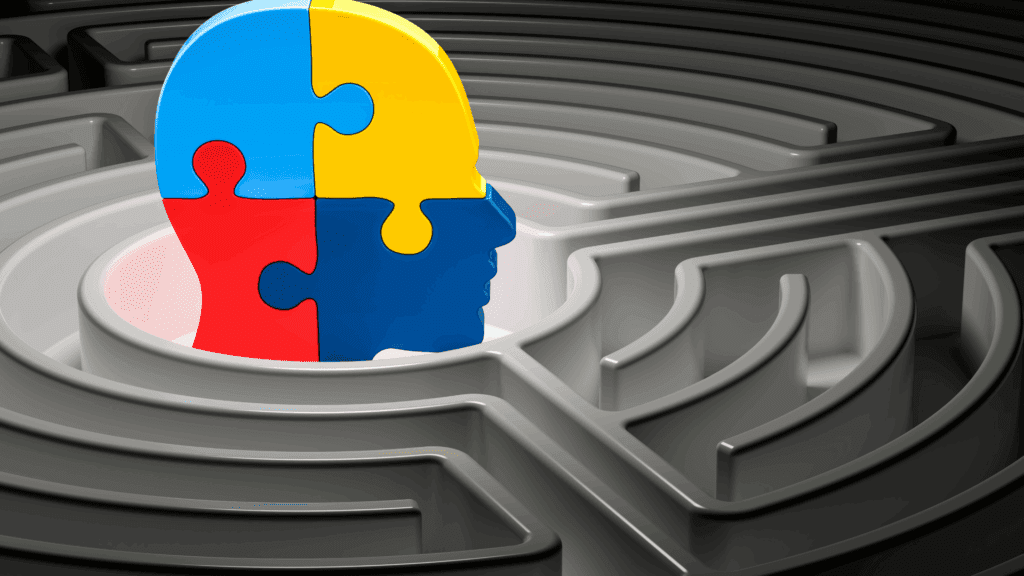Self-esteem, our intrinsic sense of self-worth, can be profoundly influenced by cognitive distortions—those skewed perceptions and irrational beliefs that deviate from reality. By integrating the principles of life coaching with the insights of neuroscience, individuals can gain a deeper understanding of cognitive distortions and self-esteem to embark on a journey to bolster their self-esteem. When people recognize that their thoughts are not fixed truths but patterns shaped by repeated neural firing, they begin to see self-esteem not as a fragile trait but as a dynamic quality that can be strengthened. This perspective provides both hope and direction, especially for those who have long struggled with cycles of self-doubt.
The Neuroscience Behind Cognitive Distortions and Self-Esteem
Our self-esteem is intricately linked to the neural pathways formed through experiences, feedback, and self-perception. Cognitive distortions, often rooted in these pathways, can negatively impact our self-view. For instance, a distortion like “catastrophizing” might lead someone to blow a minor mistake out of proportion, affecting their self-worth. Understanding the neural basis of these distortions provides a foundation for addressing and rectifying them. Neuroscience shows that the brain’s plasticity allows for rewiring when intentional, consistent effort is applied. The same circuits that once reinforced negative thought loops can, over time, be reshaped to strengthen resilience and confidence. This means that low self-esteem is not a permanent neurological reality but a reflection of current wiring that can evolve.

Identifying Cognitive Distortions that Erode Self-Esteem
- Introspection and Self-awareness: Tuning into one’s thoughts and recognizing patterns that diminish self-worth is crucial. Realizing that these patterns have a neural origin can make the process more tangible and actionable. For example, noticing that one automatically assumes blame in group settings may reveal a distortion of personal responsibility that erodes confidence.
- Feedback from a Life Coach: A life coach, equipped with neuroscience knowledge, can offer insights into observed behaviors and thought patterns that hint at underlying cognitive distortions. Through guided questioning and real-time reflection, the coach helps the individual connect their automatic thoughts with the underlying neural associations driving them. This creates a bridge between awareness and practical strategies for change.
- Journaling: Documenting thoughts and feelings can help in spotting recurring negative self-perceptions and the distortions driving them. Writing provides a record of thought cycles that can be reviewed to uncover how often the same distortions appear, reinforcing the importance of intervention. Over time, reviewing journals also provides tangible evidence of progress, which strengthens self-belief.
Strategies to Enhance Self-Esteem by Addressing Cognitive Distortions
- Neural Repatterning: Creating new, positive neural pathways through affirmations, visualization, and positive experiences can gradually diminish the influence of cognitive distortions on self-esteem. This process works best when paired with repeated emotional engagement, since emotion amplifies neural firing and makes new patterns more likely to stick.
- Mindfulness Practices: Being present and observing thoughts without judgment allows for a clearer understanding of distortions in real-time, offering an opportunity to challenge and reframe them. Mindfulness not only interrupts negative spirals but also strengthens the brain’s prefrontal cortex, which is central to self-regulation and balanced decision-making. As the ability to regulate improves, self-esteem naturally stabilizes.
- Cognitive Restructuring: Actively challenging and replacing distorted beliefs with balanced ones can reshape the neural pathways associated with self-esteem. For instance, replacing “I always fail” with “I sometimes succeed and sometimes struggle, but I continue to grow” introduces flexibility that reduces shame and builds self-compassion.
- Empowerment through Knowledge: Understanding the neuroscience behind cognitive distortions can empower individuals to take proactive steps in enhancing their self-worth. Knowledge transforms abstract concepts into actionable tools. When someone learns that a distortion is not a reflection of who they are but how their brain has been conditioned, the sense of control returns. This empowers them to step into new behaviors with greater confidence.
In conclusion, the confluence of life coaching and neuroscience offers a holistic approach to understanding and improving self-esteem. By addressing the cognitive distortions at their neural roots, individuals can cultivate a healthier sense of self-worth, leading to a more confident and fulfilling life. The key lies in persistence: every effort to notice, reframe, and repattern thoughts strengthens new neural connections. Over time, this process creates a self-image rooted not in distortion but in balanced, resilient truth. Self-esteem, therefore, becomes less about avoiding mistakes and more about embracing the full spectrum of human growth with clarity and strength.













